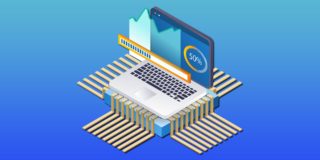The Cost of Switching Operating Systems
I got an interesting email in from Michael, a reader of the site. He says:
First let me say that this website is a wonderful resource for everyone not just novices. Your clear explanations on topics and your wonderful videos arejust great. A suggestion for your next video should be the cost some companies would have to go through in order to make a realistic change to an alternative platform, Linux or mac. I work in a large enterprise with all end user machines
are PC’s with a few mac’s. The servers are a mixed breed but majority are Windows. The cost associated to switching platforms is too high and I believeits the zealous nature of Linux fanboys or mac fanboys that makes their points invalid. The cost to re-train your staff, re-write some applications that were developed within the company…that’s alot of money and time. So before everyone
starts plotting the end of Microsoft and make valid arguments for Linux on the desktop or mac, lets first start being realistic. Cost is too high and it will take too much time.
His point is a very good one – one often forgotten by those of us who are end users who personally control our own computers. While Windows is, no doubt, the most popular operating system in the world when it comes to home users, it is also, by far, the most popular operating system in the corporate world.
As any person who works for a company can probably attest to, corporations are like huge cruise ships when it comes to IT – they do not turn on a dime. They choose Windows because it is tried and true, everybody uses it, and they get official support from Microsoft. Companies LOVE to have somebody to blame when things go wrong.
When I was working in IT for a brief stint at Citibank, one of the things that I was surprised at was the slowness at which a decision gets made. It takes forever to make a decision. Sometimes there can be multiple meetings on one topic and still nothing happens. And, yes, they loved big name software. Even if PHP might be the server language of choice, they would buy a big expensive license to Cold Fusion. Why? Because they think if it has a big corporation behind it and it is expensive, it must be good.
Apple is a corporation and their stuff is expensive, but Apple is probably never going to enjoy wide adoption in the business world. Windows is entrenched, and as Mike says, so much gets invested into it that they would never completely jump ship and move to OS X. Companies are slow enough to even adopt Windows Vista for fear of the differences from XP.
Linux is good for some server-level environments, but it is not going to ever find wide adoption for corporate desktops either. I don’t care what any Linux user says, Linux is a difficult operating system. Ubuntu has gotten pretty good, but Linux, for the most part, is far from user friendly. Linux is also so anti-commercialism that it shoots itself in the foot. By not adopting and working with anything commercial, they guarantee that they will not be used in a commercial environment. That is, except for perhaps web servers where they have IT people on staff who know how to administrate Linux.
So, Mike brings to mind a reality check to those people who argue over one OS or another. The OS is the operating system, and no large company is going to switch as long as it means they have to cease operating the way they are used to. Takes loads of time, loads of training, loads of money, and loads of frustration.

















6 thoughts on “The Cost of Switching Operating Systems”
So in the Windoze – Mac – Linux debate, look for the fine hand of the gooferment causing trouble. Look how the gooferment for all intents and purposes makes these companies lobby for their survival; that cost comes out of something somewhere. Look at the FCC — the agency that singly handedly delayed the cell phone for decades and the fax for merely a decade — currently screwing up “spectrum” and then “auctioning” it off; those costs have to come from somewhere. Look how the gooferment uses “standard setting” to anoint winners and losers (e.g., Open Document Format); that all comes from somewhere.
I’d suspect that if the Mac and Linus folks, as well as the WebOS folks and Google Web Apps, can make their offerings invisible to the end user, then they can dislodge Microsoft from the Desktop. We have had these platform debates for eons, and probably will continue to have them.
I’d also point out that the monolithic large companies that are frozen in the Microsoft footprint by their TCO are organizations of the past. Dino the dinosaur. The small – quick – nimble out compete the big – slow – plodding all the time.
Of course, the big fat gooferment likes big – slow – plodding companies who are fat. It leechs off of them and makes dance to their tune. Fortunately for the consumer, and not fortunate for the American worker / economy / country, there are two trends that are stopping that. Offshoring stuff to “better” places (Note the latest example: California farm owners, who need Mexican migrant labor, are moving their farms to Mexico! Moving a farm? Now if they can move, what’s stopping others? Intertia.) and Downsizing orgs into small fry (Look at the activity in technology start ups: start small – stay small – sell out – move on.)
Sorry, but those are the hard cruel facts. The free market will always be open and adapting despite laws, rules, regs, diktats, or wishes. The gooferment is the root of all our problems. And, where there is a will (become invisible) there is a way (displace Microsft from the desktop).
imho, but what do I know, I’m just an old bell head who thinks Bell Labs was a national treasure.
fjohn
Ferdinand J. Reinke
Kendall Park, NJ 08824
Webform that creates an urgent email => http://2idi.com/contact/=reinkefj
Web page => http://www.reinke.cc/
My blog => http://www.reinkefaceslife.com/
LinkedIn url => http://www.linkedin.com/in/reinkefj
I work for a company with over 35,000 employees. So basically Mac and Linux guru’s think that because there chosen OS is easy to learn and relativly stable thats going to turn the tide and in 1 year there is a revolution. Not going to happen.
One final point. 50-60 years ago, Ford was the only car you could purchase. It was the best. Now Ford….well…you all know..MS wont be around forever but that doesnt mean its gonig anywhere any time soon..Even with Vista or Windows 7, MS has heavy vested intrest in thier software. Everything from Vista to JSP, ASP, VBSCRIPT,VB…..there everywhere. Thier technology is everywhere. Lets all just try to be realistic about what happens at home with our comptuers and what happens in the workplace…..
You have a sales force of 100 people and you need 100 laptops. Furthermore you need an OS that will run all the existing corporate applications, and have network security applied easily, and have the sales employees be able to use the units with little to no learning curve.
It has to be affordable and have an EOL of five years before turnover.
You can go to Dell right now and they have this available – five year EOL and all. And the support for the OS and applications is ready to roll.
In fact, Dell will give you a very good idea of what your TCO will be up front.
Can Apple match the price of the Dells?
Would Apple support the units for five years for any/all hardware failures?
This is what businesses need to know – and let’s not forget the fact that the migration would be an absolute nightmare.
You’d have to train all 100 employees on how to use OS X instead of Windows (lost time and money).
You’d have to hire and train new helpdesk staff to support the Macs when they break (more lost time and money).
You’d have to train/re-train existing I.T. or hire new to connect the Macs to the network, apply security and a whole host of other “goodness”.
It’s a CIO’s worst nightmare – and that’s just for 100 employees.
Can you imagine doing this for 500 or more?
Would moving to Mac for business really serve any advantage considering the huge time and cost involved?